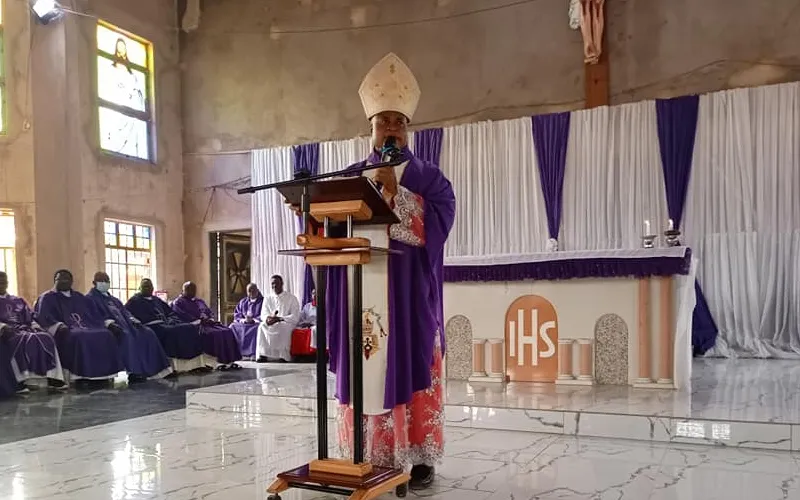“In the unlikely event that they forgot and were already on the line to make their offering and there remembered that they have outstanding issues with someone, they should step aside from the offertory line and go and get reconciled first before coming back to make their offering,” the Nigerian Catholic Bishop said.
He said that Jesus’ teaching on the need to make peace with each other deepens the meaning of offertory.
According to the Local Ordinary of Ekwulobia Diocese, offertory is not simply a way of supporting the Church from the gifts God has given one.
“Offertory, like the Holy Eucharist, is a mode of communion with God, an expression of love of God which must include love of one’s brothers and sisters for it to be authentic,” he said, and explained that in the offertory, one takes from among God’s gift to one and gives back in thanksgiving to God and in acknowledgement of one’s union with God.
“As an expression of communion with God and with others, it makes sense that one should not be angry with one’s brother and sister; denigrate or excludes one’s brother or sister socially,” Bishop Ebere said, and added, “Any of these actions and attitudes detracts from communion notwithstanding the ease with which human beings slide into them.”
He highlighted the need for the people of God to acknowledge the gravity of anger and denigrating words, saying, “Words are windows into the heart. That is why Scripture tells us that out of the abundance of the heart, the mouth speaks.”
The Catholic Bishop underlined the need to be careful with words used against others and noted that “every action starts as a thought or a stirring of the heart which could be expressed in words or translated into action.”
“Effective policing of words is not only a way of inculcating mental hygiene but also of mitigating the consequences of words on others. The Epistle of James (3:1-12) highlights the potency of words. He shows that the tongue can set fire to the whole wheel of creation,” Bishop Ebere said.
He added, “Some people’s lives have been turned upside down with words just as words could also heal. The injunction of Jesus underlines this power of words while also demanding a quick response to neutralize the possible harmful effect of any careless or inappropriate word or action. Like kerosene, any unresolved issue or hurting/hateful word tends to spread by its momentum, contaminating everything.”
The Bishop of Ekwulobia said that as part of the Lenten observance, the people of God must learn to abstain from hurtful words.








